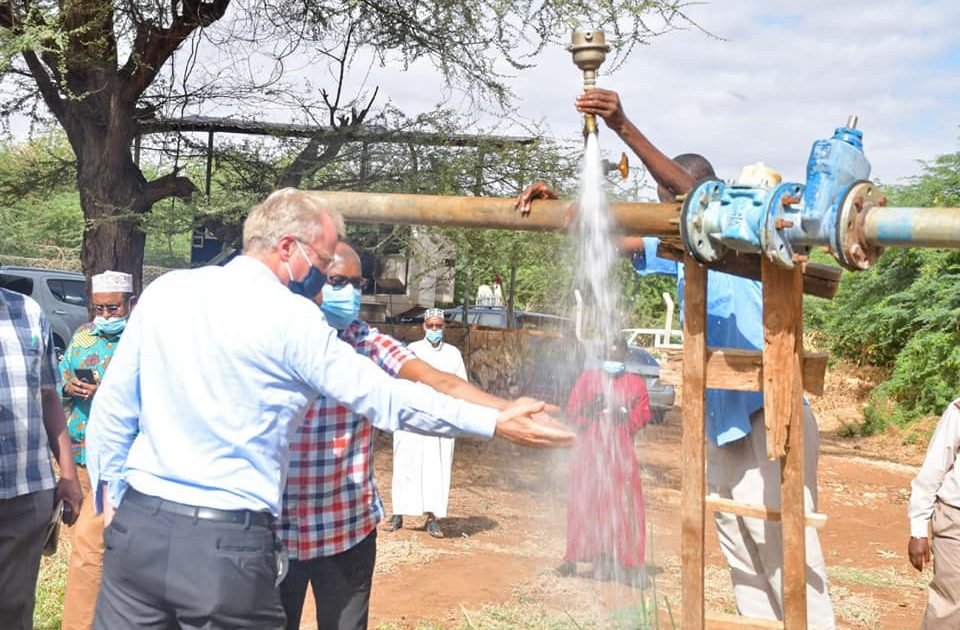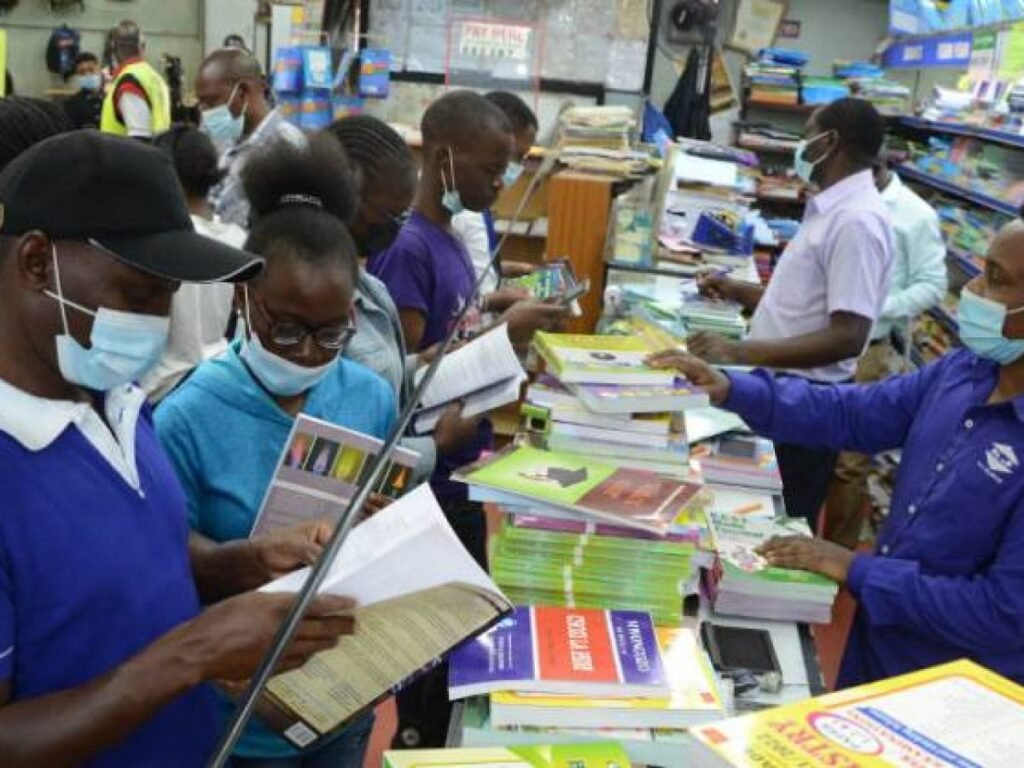General News
Frontier Council To Address Water Challenges In Northern Kenya

Frontier Counties Development Council (FCDC) CEO Simba Guleid has called for better ways in dealing with drought and water challenges in the Northern region.
Speaking today during the inspection of a water project at Iftin in Garissa Township, Guleid said that while there have been perennial water challenges in the region, a lot of water has been lost through flooding and the rest flowing out through River Tana.
The project, which is an underground water borehole of about 35 meters deep was allocated about 7.5 million dollars and is expected to serve over 30,000 households in Garissa Township.
“We are undertaking an assessment for establishment of regional water master-plan entailing how we can tailor-make the water solutions in each county,” Guleid said
“We can have ways of harvesting the runaway water from rains and the flood water into a water reservoirs and dams or search for underground water,” he added
FCDC serves as a catalyst in promoting, integrating, sustaining peace and socio-economic development of Northern Kenya. The counties under FCDC are Garissa, Isiolo, Wajir, Mandera, Tana River, Lamu, Marsabit, West Pokot, Turkana and Samburu.
The counties have received an cumulative amount of 35 million dollars for the last 5 years from the Swiss government and other development partners to mitigate water and drought challenges.
The Swiss Ambassador to Kenya Valentin Zellweger said that his government was committed to coming up with viable projects that would bring solutions for water, drought and flooding challenges that have faced the northern region people for the past years.
“We do not only work together with the local authorities and FCDC but also with the private sector. We have companies that are working on these projects with us and that ensures that the project will remain sustainable even if the Swiss government decides to withdraw,” Zellweger said.
The inspection team included Garissa County water CEC Abdi Omar, Garissa Deputy County Commissioner James Ole Kipury among others.
The Northern counties have continuously been hit by natural disasters among them drought and floods. There have also been other challenges including boundary conflicts over scarce pastures and water for livestock and Al-Shabaab invasions.
General News
IMF Criticizes Kenya’s Fuel Subsidy Re-Introduction, Warns of Budget Distortion

The International Monetary Fund (IMF) has criticized Kenya for re-implementing the fuel subsidy scheme, expressing concerns that the lack of funds to pay oil marketers could distort the budget.
Despite a previous commitment by President William Ruto in 2022 not to subsidize pump prices, the government reintroduced the subsidy, preventing petrol and diesel prices from reaching higher levels in October 2023.
The IMF argues that the subsidy was applied without available funds, as the Treasury has yet to pay oil marketers at least Ksh9 billion ($55.6 million) accumulated from the previous year. President Ruto’s decision to reinstate subsidies goes against conditions set by the IMF for accessing loans.
Petrol and diesel prices, which were Ksh217.36 ($1.34) and Ksh205.47 ($1.27) respectively in Nairobi in October 2023, remained lower than the potential Ksh220.43 ($1.36) and Ksh217.11 ($1.34) due to the subsidy. However, the IMF disapproves of the decision, emphasizing that the removal of the subsidy was a key condition for a 38-month budget support scheme.
The IMF criticizes the prolonged process of forming a taskforce and delays in implementing decisions regarding fuel pricing.
The removal of the subsidy in May of the previous year led to record-high pump prices, crossing the Ksh200-mark later in the year due to a combination of subsidy removal and a VAT increase to 16 percent.
Kenya’s administration, faced with rising fuel costs, chose to reinstate the subsidy, prompting the IMF to raise alarms over the lack of budgeted funds and potential distortions in the country’s financial plans.
The ongoing disagreement highlights the challenges and consequences associated with balancing domestic economic policies and meeting international financial commitments
General News
Parents in Meru County Turn to Second-Hand Books Amid Economic Hardships

As the back-to-school rush season unfolds in Meru County, a growing number of parents are making a strategic choice to purchase second-hand books for their children.
This decision stems from the challenging economic conditions that have prompted families to seek ways to cut costs.
Among these parents is Ms. Prisca Gakii, who revealed that opting for second-hand books allows her to save money, which can then be allocated towards essential expenses like school fees.
She highlighted a practical advantage for Form-One students, emphasizing that using older books can protect them from potential theft, as new books often become targets for less scrupulous classmates.

Ms. Gakii pointed out a notable price difference, citing an example of a new Oxford dictionary priced at almost Sh1,900, compared to a used one available for Sh1400.
She justified her preference for the older but more affordable option, emphasizing that they contain the same content.
Janet Wamuyu, a second-hand books trader, shed light on the lucrative nature of their business during the opening of the first term, which coincides with the peak season.
As learners transition to new grades or classes, there is a heightened demand for various books, including dictionaries, Kamusi, and Golden Bells.

Wamuyu explained that this period, especially when Form-One students are joining school, facilitates easy acquisition of books for new stock.
The trading process involves exchanging books for the next grade or class at a lower rate, providing an economical alternative for parents instead of purchasing an entirely new set of books.
She further noted that their source of new stock comes from parents whose children have completed their studies and no longer require the books.
Despite the success during the peak season, Wamuyu acknowledged the challenges faced during other times of the year when only a few revision books are in demand, highlighting the cyclical nature of the business in Meru County.























